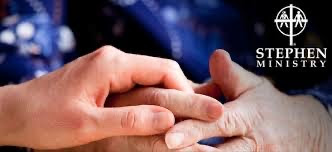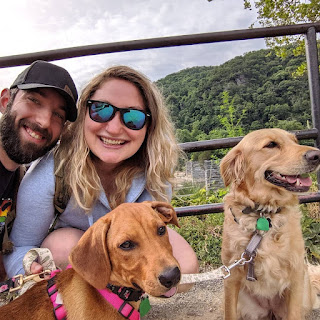In my first three posts in this series, I wrote about the courage to face the truth about my daughter, Jessi’s, struggle with diabetes, anxiety and depression, the amazing intuitiveness I have with her and how I have had to learn how to trust her--and to be able to trust her to God--and, thirdly, about the courage to trust others and ask for and accept help. It really does take a community of compassionate, caring, supportive people.
Finally, I want to focus on the importance of education and advocacy when it comes to dealing with physical or mental illness, becoming “wounded healers” as we learn from our suffering and use that learning to love and support others.
Jessi was diagnosed with type I diabetes on a Friday when she was 8 years old, and the very next day her mother, brother, Jessi and I were taking a class on diabetes, including how to give Jessi injections of insulin.
We were also told about a week-long diabetes camp held each summer near Devils Lake, ND, and we made sure Jessi was able to attend each year. Here she not only learned more about diabetes, but she was able to bond with and make friends with others who also had diabetes.
When Jessi was diagnosed with anxiety and depression at the age of 10, education was again key to helping Jessi learn about these afflictions, but also to us, as family, as we learned how best to support her. We not only read books about anxiety, depression and suicide, but we went to family therapy. Jessi was constantly working with a therapist and eventually, psychiatrists, as she started taking antidepressant medications.
All these forms of education were key to helping Jessi understand her illnesses and to us as family as we learned both what was helpful and what was not in loving and supporting her. We made plenty of mistakes along the way, but we tried to learn from them and change our future behavior.
We are so grateful that we had all these opportunities to learn and that we had funds available to find Jessi and us the best possible teachers.
The next step was to take what we had all learned and become advocates for others. Jessi has taken the lead in this, and she has been fierce in her search for mental health and in loving others who also struggle with the many questions and struggles that go with anxiety and depression.
When Jessi was 21, she and I flew to Orlando, Florida for a week-long workshop called Stephen Ministry, which trains laypersons in how to offer support and pastoral care to persons both inside and outside of one’s congregation. Jessi, by the way, was the youngest person in this gathering of some 300 people.
I suggested to Jessi that we take one day off and go across the street to Disney World, which she had never attended. “No Dad,” Jessi replied. “We are here to learn how to do Stephen Ministry and we need to attend all the sessions offered.”
Part of Jessi’s anxiety is that she has certain obsessive-compulsive needs, including being early for all appointments and being able to pick seats in a classroom or workshop where she feels the safest. At Stephen Ministry she not only wanted to be at least 20 minutes early for each session, but she wanted to sit at a table which was in the back row in the very middle of the large conference room.
After morning sessions, participants had the option of picking up a box lunch and returning to the main conference room to discuss an assigned topic. Jessi liked to do this: extra learning, you know. One day, without saying a word to me, Jessi stood up during this time and marched to the front of the room where people were invited to grab the microphone. I was, frankly, aghast, as Jessi is normally very reserved in large groups. She took the microphone and summarized her own history of anxiety and depression, and then explained that she wanted to be a Stephen Minister in order to take what she had learned and help and support others going through the same thing, i.e. a wounded healer. When she was done, there was a long pause, and then the participants gave Jessi a standing ovation.
As Jessi walked back to our table, an older woman at the neighboring table called Jessi over and asked if she could ask her a question. The woman explained that her husband had been quite depressed, and then committed suicide. This woman wondered why her husband didn’t love her enough to want to stay alive. Jessi responded, “This has nothing to do with how much he loved you. When a person is in a severe depression, they don’t think about anyone or anything else. They just want the pain to end, and sometimes death seems like the only way to finally end that pain.”
Jessi has continued to be a fierce advocate for those who suffer. She has already maintained a couple of blogs where she openly shares her own struggle with depression. See Out of Darkness, Into Nature
 |
She also supports and participates in the annual Out of Darkness walks which last overnight, comprise over 16 miles, raise tens of thousands of dollars for suicide prevention and end at sunrise as one walks through thousands of luminaria, each representing someone who has been affected by suicide. We have all been blessed to have many friends and family who join her in these walks. Sometimes they even walk in her place. One summer a walk was in Seattle, and Jessi planned to walk with her Aunt Joy. However, just before the walk, Jessi was hospitalized with depression, and her cousin, Elin, walked in her place, securing the pledges that Jessi had raised.
Jessi and Rob asked me to officiate at their wedding two years ago. In my sermon I shared how I had once been at a spirituality retreat where we did what we call a “guided imagery,” based on the Biblical story of four people who had brought an ill man to Jesus and lowered him through the ceiling of the house so Jesus could heal him. The leader of the guided imagery then asked us who we were each worried about, and I focused on Jessi. Then she asked who the four people were who would bring that person to Jesus for healing. I immediately thought of her brother, Brian, and then two persons who were members of the congregation I was serving at the time. But who was the fourth?
Into my mind came a young man I did not recognize. I wondered whom he could be? And then the revelation came to me that I had not met him yet, but this man would love Jessi the way I do.
Now, I went on to say, I realize that we have, indeed, met this young man. He is Rob, and Mary and I rejoice in the mutual, unconditional love that Jessi and Rob have found in each other.
So here I am, once again gathered with all our family to celebrate an early Thanksgiving in Jessi’s and Rob’s home. Being with Jessi has made it possible to write the final installment of “The Thing I Can’t Write About,” as somehow it seems easier to do when I am actually with her.
In addition to giving thanks for all the amazing people who have been there for our family over the years, we give thanks for one more thing. Jessi and Rob are “with child,” who is scheduled to come forth sometime around Easter. The blessings never seem to end!










































